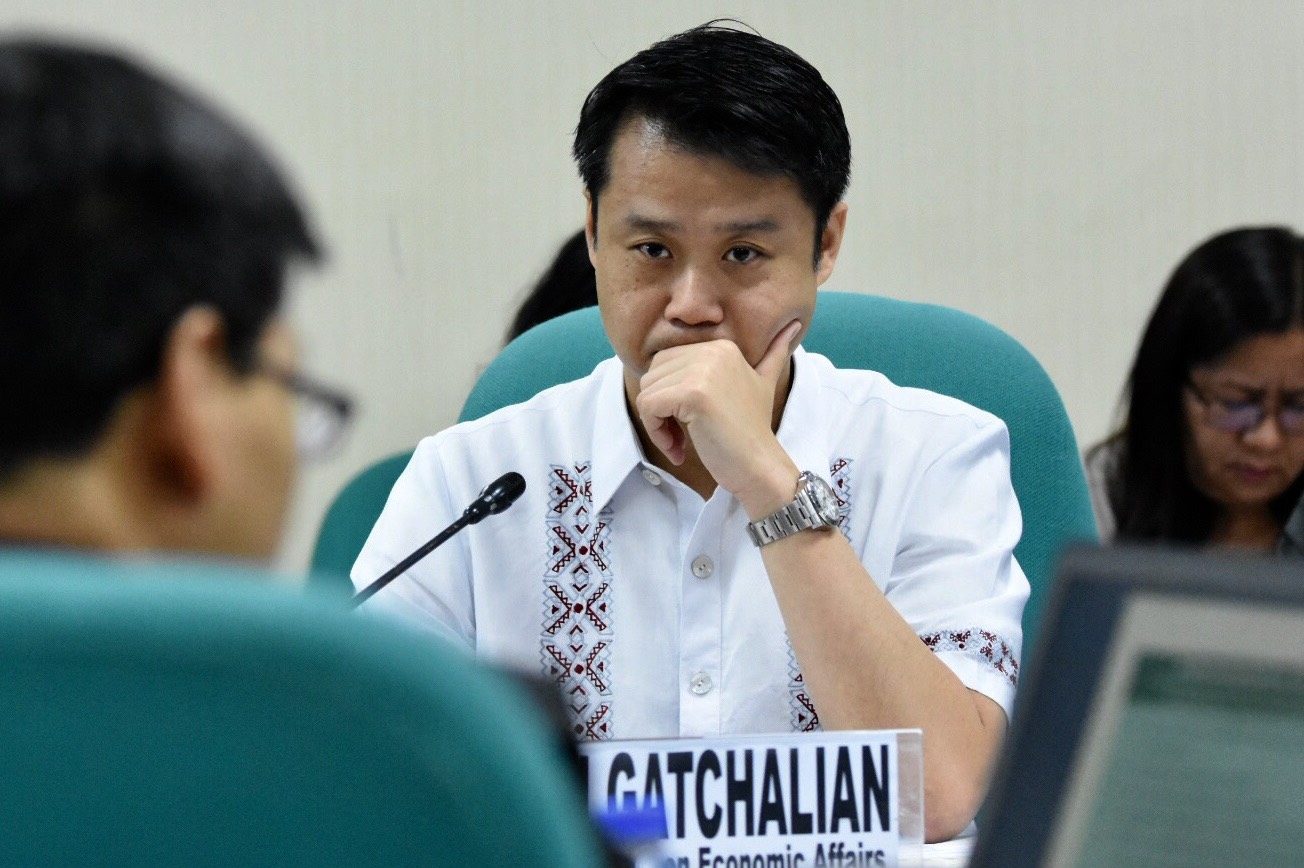SUMMARY
This is AI generated summarization, which may have errors. For context, always refer to the full article.

MANILA, Philippines – Senate economic affairs committee chairperson Sherwin Gatchalian asked the Duterte administration’s economic team to be “more transparent” on infrastructure loans, amid allegations of preferential treatment and one-sided provisions for China.
In a Senate hearing on the matter on Tuesday, March 5, Gatchalian said that while loan documents can be requested through President Rodrigo Duterte’s executive order on freedom of information, these should be readily accessible on agency websites.
He said he looked for a summary of the loan deals on the websites of the National Economic and Development Authority (NEDA), Department of Finance (DOF), and Bangko Sentral ng Pilipinas, but failed to find them.
“I urge NEDA and DOF to practice greater transparency…. Everything being done here is for constituents,” Gatchalian said.
The hearing comes days after senatorial candidate Neri Colmenares flagged “onerous” loan deals with China.
The former lawmaker said the loan terms for the Chico River dam project had vaguely-worded provisions which may give China control over the Philippines’ assets.
The hearing did not dwell on these provisions, as Gatchalian wanted to get hold of the loan documents first before delving into the details.
He said he would look into the contentious provisions once he is given a copy of the documents.
Preferential treatment?
During the hearing, allegations of deals favoring China surfaced.
The DOF disputed this and insisted all loans went through a rigorous vetting process.
Finance Assistant Secretary Maria Edita Tan also explained that Japan has more deals in the pipeline than China.
Out of the 9 ongoing projects being financed through official development assistance (ODA), 5 projects are funded by Japan, 2 by South Korea, and 2 by China.
As of the latest data from NEDA, over 73% of all projects will be financed through ODA, 17% will be under the national budget, while around 8% will be through public-private partnerships.
A total of 19 out of the 75 flagship projects will be funded by China.
Gatchalian said he is “not worried” about the number of deals with Beijing, adding that the government is merely diversifying its loan portfolio.
Meanwhile, NEDA Assistant Secretary Jonathan Uy said the projects under the Build, Build, Build program were carefully studied.
Uy said the economic gains from the infrastructure projects outweigh the costs.
Financial health
The government will incur a massive P2.1-trillion debt for all of the 75 flagship projects.
Can the Philippines afford it? (READ: Rising ‘above serial underspending’? Budget gap widens in 2018)
Bases Conversion and Development Authority President Vince Dizon said the country’s debt-to-gross domestic product (GDP) ratio, or the ratio between the country’s loan obligations and the economy’s size, remains good.
Dizon said the economic team projects a downward trajectory, hitting 32.6% by 2022.
However, Research, Education, and Institutional Development Foundation director Ronilo Balbieran said these projections are anchored on the assumption that the Philippines’ economic growth will be better than 6%.
Balbieran said the government needs to efficiently collect taxes and consistently grow the economy by at least 6.6%.
The country’s GDP grew by 6.2% in 2018, missing the government’s target band of 7% to 8%. – Rappler.com
Add a comment
How does this make you feel?
There are no comments yet. Add your comment to start the conversation.